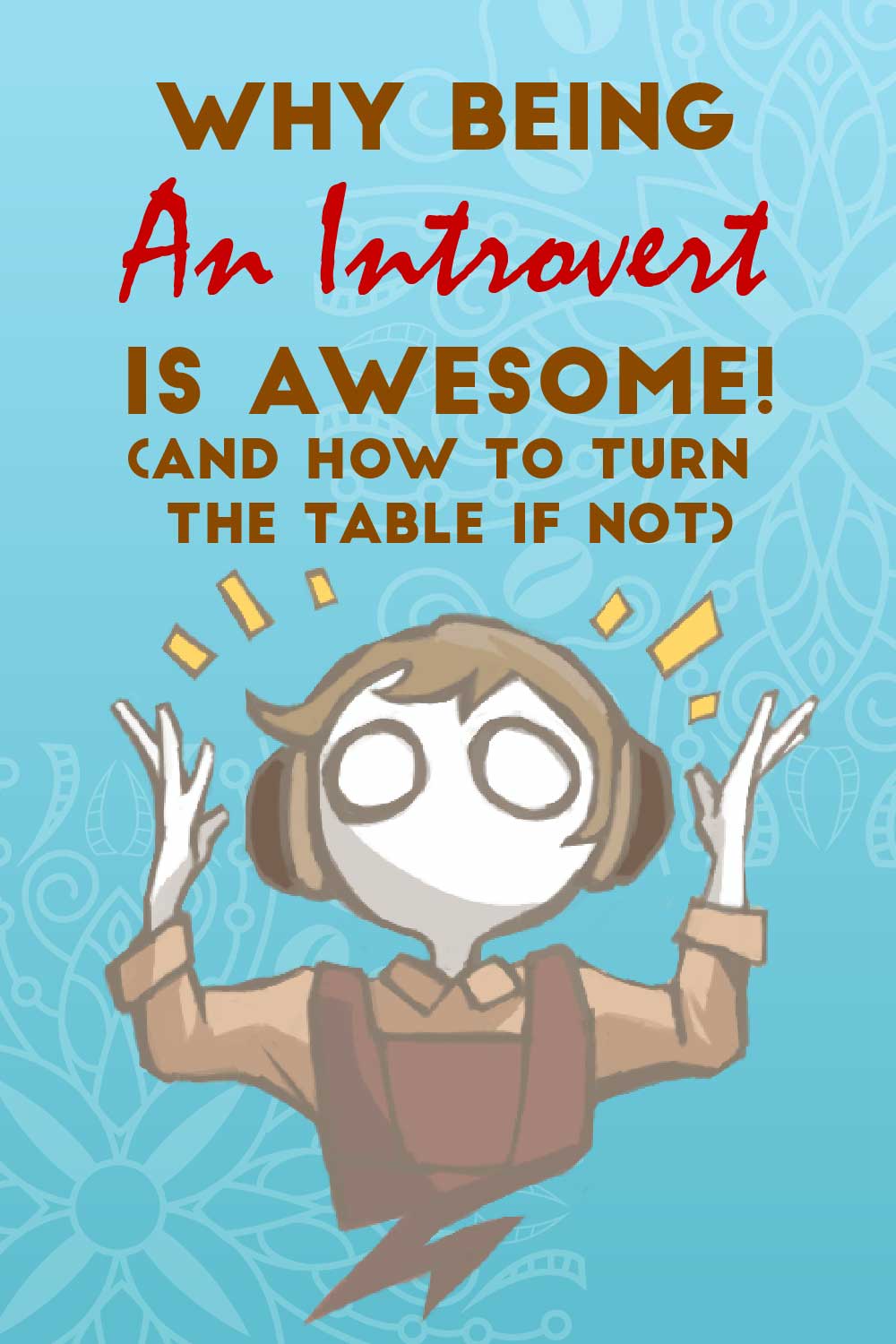

Dear Diary,
It was rainy today.
I don’t know why. But everything just didn’t go well, and I’m afraid things will just remain bad tomorrow.
First off, I got a bad grade for the 4th time in a row. I’ve been looking forward to this art course for a long time. But now…
I’m starting to think if I shouldn’t be here in the first place.
I can’t seem to improve. Everyone has a head-start already; they all seemed to be either art school graduates or professional artists…
Oh, wait! I’m giving excuses again, aren’t I? That’s a loser’s attitude.
Am I a loser? If so, then it doesn’t matter which course I attend, does it? The results are going to be the same.
Maybe I’ll never be good at anything…
…
Table of Contents
It’s hard to control your thoughts
It sounds dramatic, doesn’t it?
It all started with just a bad grade. And then it ended with “I’ll never be good at anything”.
But in real life, thoughts do come like a snowball. It piles on things after things, until it becomes half-truths and half-assumptions.

That’s why negative thoughts can be damaging.
You may think: “They are all just thoughts. It’s not like they will ‘ruin my life’ or anything.“
Well, hold that thought! Let’s see exactly what negative thinking can affect your life:
What Negative Thinking Does to You
1. Less Likely to Achieve Goal
When you don’t even believe that you can succeed, your body will behave as if it’s already a reality.
Imagine this goal: to experience flying.
Sounds like an absurd idea, doesn’t it? Even I feel skeptical myself.
The result is: you won’t try anything at all to experience flying. In fact, you won’t even think much about how exactly you can experience flying.
To be fair, your goal is probably not “flying”. But the same logic applies.
If you think you will fail, you won’t try hard to achieve your goal in the first place. The chance of success may be 50%, but with negative thinking, it can be down to 0-10%.
2. Lower Immunity

Your negative thoughts affect your mood and stress level.
When you’re constantly stressed or in negative emotion, your immune system will lower its guard.
As a result, not only will you put your mental health at risk, but your physical health as well.
3. Passive-Aggressiveness

Passive-aggressiveness comes when you’re trying to remain polite when you’re in a bad mood.
Emphasis on “trying“.
Negative thinking is the devil on the shoulder who puts you in a victim mindset.
It upsets you because you’re a “victim”. It also convinces you that you can’t turn the situation around because you’re a “victim”. Hence you have to remain passive.
Unfortunately, we can pick up passive-aggressive behaviors easily. Just like other people can pick up ours.
At the end, passive-aggressiveness not only fails to solve your problems, but it also creates conflicts between you and your peers.
4. Lower Self-Esteem & Confidence

With negative thoughts often going around your mind, naturally, you will not trust yourself anymore.
Low self-esteem and low confidence can be severely damaging to you, whether in relationships, goals, and even day-to-day life.
Imaging not trying anything new in life- not because you cannot, but because you don’t think you can!
That’s why positive thinking is so essential.
Here are some examples of how positive thinking can help you:
Why Should You Practice Positive Thinking?
1. Lower Rates of Depression

Having a positive mindset can help prevent mental issues like depression.
The cause of depression can be different things. But prolonged stress and negative emotions can definitely contribute to it.
Positive thinking can tilt negative emotions to more positive ones.
To be specific, it helps you think that your problems are ultimately solvable. And thus, it encourages you to think of ways to solve them.
At the end of the day, you will feel better instead of drowning yourself in despair.
Note: If you already suffer from depression, please understand that positive thinking alone cannot be the cure. It’s much better to seek professional help as well.
2. Longer Life Span
According to research in 2019, those who practice positive thinking can have 11-15% longer lifespan. But how?
The most direct reason is that- positive thinking increases your will to live.
Other than that, a positive mind encourages you to take care of your health more, even when you age.
For example, instead of thinking “I’m old anyway. It’s no use to start exercising“, you will take action in exercising no matter what age you are. Because you know it can positively affect your life.
3. Improved Immune System

Positive thinking not only improves your mental health and influence you to take healthy life choices. But it also improves your immunity!
Specifically, it helps improve your body’s inflammatory response to infection.
Here’s the article detailing the research. It’s quite fascinating.
4. Better Chance to Achieve Goals
The biggest result of positive thinking is that you will be more inclined to believe that it’s possible to succeed.
When things are possible, you naturally are willing to take action to achieve your goals.
And things don’t just end there!
You will find ways to improve your strategy. Even when facing failures and setbacks, you will look for solutions instead of giving up.
And that’s how you earn your rewards.
So here comes the question: how exactly do you practice positive thinking?
20 Simple Tips on Positive Thinking
1. Create a Gratitude Journal

Record at least 3 things you’re grateful for every day. It won’t take long before you realized you have noted down pages after pages.
Whenever you flip the gratitude journal open, you can see how positive and happy life can be.
Read here for the beginner’s guide on bullet journaling.

2. Self-Deprecation Jokes
Self-deprecation jokes- told by yourself- aren’t putting yourself down.
In fact, they make you feel humble and down-to-earth. Because you’re acknowledging your shortcomings in front of your peers.
Everyone has shortcomings, but your acknowledgment of yours is a huge step of self-improvement.
3. Be Honest with Your Feelings
Positive thinking isn’t about forcing yourself to feel happy at every turn.
Instead of suppressing your negative feelings, it’s okay to express them. Whether in crying, talking to friends and family, or simply writing them down.
4. Spend Time with Positive Friends

Your friends can influence you more than you imagined.
In a circle of friends, you sometimes have to adjust your preference, attitude, even personality in order to fit in.
Normally, it’s not healthy to force yourself to please the crowd. But now, you can use that part of psychology to your advantage!
When you want to practice positive thinking, positive friends can be your example to learn from!
5. Affirmations
We all need a reminder from time to time.
Positive affirmation is like a sports coach. It pumps you up and motivates you to keep going.
The common practice for positive affirmations is to write little post-it notes for yourself.
What to write really depends on your preference. Some people like simple motivational quotes, some prefer gentle reminders with a smiley face on the side, and some like it hard-core (“Get going now, dammit!”).
Be careful about what you write, though. Be positive but realistic at the same time.
6. Listen to Upbeat Music

Who doesn’t love music?
Music is a universal language that not only delivers message, but also influences your mood.
Listening to upbeat music can be fun and motivating to start your day with.
7. The 5-Second Rule
The 5-Second Rule is about stopping and resetting your train of thoughts, whenever you find yourself indulging in negative thinking.
But other than controlling your thoughts, the 5-Second Rule can also apply to many things.
Watch Mel Robbins and her explanation on the 5-Second Rule:
8. Focus on the Present
You may feel tempted to worry about how the future will turn out, or recall the regrets of the past.
These two things are either out of your control, or out of your reach.
So as much as you want to indulge in the past or future, what truly gives you happiness is the present.
9. Practice Self-Care

Self-care is really important in order to stay positive.
It’s a moment for you to slow down after a long day of working. So that you can quietly reflect on yourself, as well as taking care of your own needs.
There are many ways to practice self-care. Here are about 60 ideas of how you can do it.
10. Smile to Yourself

Smiling in front of the mirror is like a silent encouragement to yourself.
Many of us retrain our smiles because it might look “awkward” or “the teeth don’t look great”.
But ultimately, it’s vastly overshadowed by the benefits of fully expressing our happiness.
11. Laugh Out Loud

Laughter relieve stress, by releasing happy hormones (endorphins) in your body.
So whenever you get the blues, know that you can look up a “try not to laugh challenge” and gladly lose to it!
12. Avoid Negative People
Negative people tends to believe that they can’t do something. And there are no points to try.
Well, to be fair, there are aspects of life that are out of our control. But having a habit of giving up without trying and shedding responsibility is an entirely different thing.
13. Have Enough Rest

You can achieve your goal. But only when you have enough energy!
Remember to set balanced work-life schedule as you hustle. An exhausted body and mind not only lower the quality of your work, but also give you a bad mood.
14. Reflect on Yourself
Reflection is a great way to see whether you are thinking positively in your day.
One way to do it is to keep a journal. Or keep a section of your journal to write about your reflections.
Even if it’s just a sentence or two, you’ll find your thoughts clearer then before.
15. Be Self-Aware
Being self-aware is to know your limits and shortcomings.
We’re sometimes tempted to either deny them, or get upset over being “inferior”.
But instead of kicking yourself over it, positive thinking is about acknowledging them and slowly working to improve yourself.
16. Understand the Meaning of Social Media

Social media looks visually appealing.
As you scroll through your friends’ profile, you can see how colorful the photos are; how happy they all look; and how great their lives seem to be.
Beware, though. There are always a big difference between social media and real life.
Remind yourself of that. So that you don’t kick yourself for not having as “wonderful” a life as your friends.
17. It’s Okay to Fail
Failing is inevitable. Be it a test, a trial, an investment, or any other things in life.
But note that it’s also extremely difficult to succeed without failing. Because the so-called “failures” are none other than trials and errors that help you gain experience.
A positive mindset accepts failings as just a normal part of life. There’s no need to pretend that you’re “happy” to fail. But there’s no need to beat yourself over it either.
18. Accept Something is Out of Your Control

What is out of your control?
Well, the obvious answers are “other people’s opinions” and “your past and future” (mentioned above).
But there are also other not-so-obvious things like: your feelings and emotions.
For example, it’s no use forcing yourself to feel happy when you’re not. And it’s counter-productive to scold yourself for feeling upset.
Focus on the things you’re in control of. Like how exactly you respond to the emotions you feel.
19. Think in Other People’s Shoes

Understanding other people’s perspective is a way to tell yourself that: “it’s okay they don’t agree with me. I can accept the fact and leave things at that.“
Because as mentioned above, it’s much better for your peace of mind to leave things out of your control as they are.
20. Watch TED-Talks on Positive Thinking
To get a good grip on what positive thinking is about, you can also listen to Ted Talks.
There are more than 10 talks about positive thinking online now, and here is one of them by Alison Ledgerwood.
Conclusion
Positive thinking isn’t about simply saying “I can do it perfectly!” or “I’m the best!” and let results magically come to you.
People who misunderstand positive thinking will say that it’s just as unrealistic as negative thinking.
But positive thinking isn’t about expanding your ego, nor is it about being unrealistically optimistic about your life.
Of course you won’t achieve your goals if you don’t work hard for them- everyone knows that! But the key points of positive thinking is simply this:
- Acknowledge the existing possibility that you can succeed.
- Think up plans and take action for your goals.
These are quite objective points; compared to negative thinking, which are “you’re impossible to succeed” and “you shouldn’t even try”.
Naturally, there are going to be ups and downs as in your journey. And I strongly recommend that you balance your time between hustling and self-care.
If you ever used up your energy, don’t worry. Take time to rest until you feel better again.




